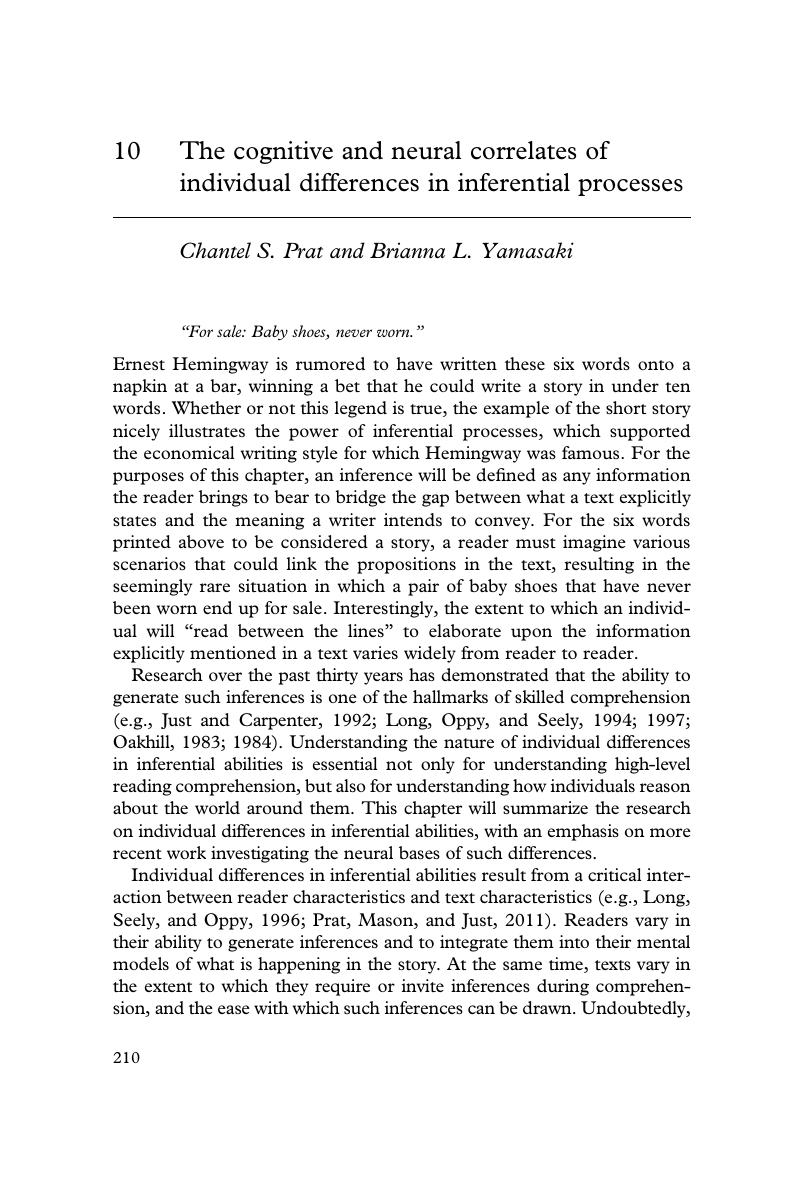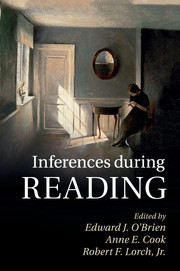Book contents
- Inferences during Reading
- Inferences during Reading
- Copyright page
- Contents
- Figures
- Tables
- Boxes
- Contributors
- Preface
- 1 Comprehending implicit meanings in text without making inferences
- 2 Passive activation and instantiation of inferences during reading
- 3 Cognitive theories in discourse-processing research
- 4 Validation of text and discourse inferences – and explicit content
- 5 Inference generation in text comprehension: automatic and strategic processes in the construction of a mental representation
- 6 Emotion inferences during reading: going beyond the tip of the iceberg
- 7 Inference processing in children: the contributions of depth and breadth of vocabulary knowledge
- 8 A general inference skill
- 9 Toward an embodied approach to inferences in comprehension: the case of action language
- 10 The cognitive and neural correlates of individual differences in inferential processes
- 11 Inferences during text comprehension
- 12 Causal inferences and world knowledge
- 13 Constructing inferences in naturalistic reading contexts
- 14 Inference generation during online study and multimedia learning
- 15 What about expository text?
- 16 The role of inferences in narrative experiences
- 17 Interpretive inferences in literature
- Appendix A Stories used in Study 2: “The Butterfly” and “Eleven”
- Index
- References
10 - The cognitive and neural correlates of individual differences in inferential processes
Published online by Cambridge University Press: 05 May 2015
- Inferences during Reading
- Inferences during Reading
- Copyright page
- Contents
- Figures
- Tables
- Boxes
- Contributors
- Preface
- 1 Comprehending implicit meanings in text without making inferences
- 2 Passive activation and instantiation of inferences during reading
- 3 Cognitive theories in discourse-processing research
- 4 Validation of text and discourse inferences – and explicit content
- 5 Inference generation in text comprehension: automatic and strategic processes in the construction of a mental representation
- 6 Emotion inferences during reading: going beyond the tip of the iceberg
- 7 Inference processing in children: the contributions of depth and breadth of vocabulary knowledge
- 8 A general inference skill
- 9 Toward an embodied approach to inferences in comprehension: the case of action language
- 10 The cognitive and neural correlates of individual differences in inferential processes
- 11 Inferences during text comprehension
- 12 Causal inferences and world knowledge
- 13 Constructing inferences in naturalistic reading contexts
- 14 Inference generation during online study and multimedia learning
- 15 What about expository text?
- 16 The role of inferences in narrative experiences
- 17 Interpretive inferences in literature
- Appendix A Stories used in Study 2: “The Butterfly” and “Eleven”
- Index
- References
Summary

- Type
- Chapter
- Information
- Inferences during Reading , pp. 210 - 229Publisher: Cambridge University PressPrint publication year: 2015
References
- 2
- Cited by



